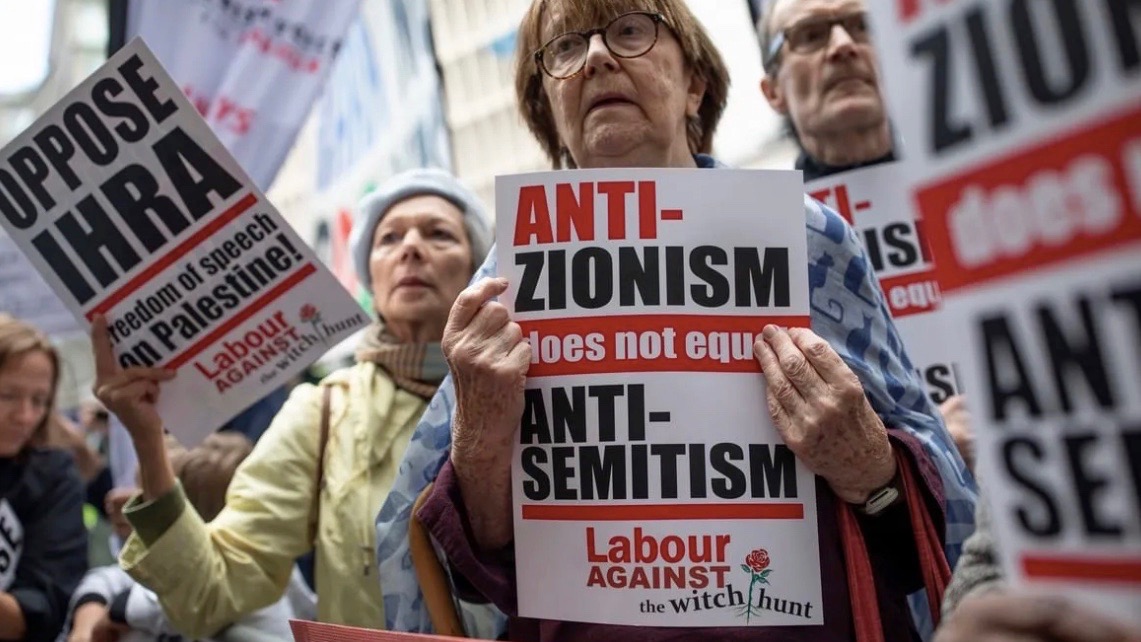More than 60 international human rights and civil society groups, in a letter on Tuesday, April 4, called on the United Nations (UN) to reject the definition of anti-Semitism formulated by the International Holocaust Remembrance Alliance (IHRA). The letter was addressed to UN Secretary General António Guterres and Under-Secretary General Miguel Ángel Moratinos. Signatories to the letter include Al-Haq, Human Rights Watch, B’Tselem, American Civil Liberties Union, International Federation for Human Rights (FIDH), Gisha-Legal Center for Freedom of Movement, Defense for Children International-Palestine, Jewish Voice for Peace, and Africa4Palestine, among others.
The letter states that the IHRA’s definition of anti-Semitism has in several countries and instances been misused to suppress legitimate criticism of Israel, and been weaponized to severely limit or altogether ban pro-Palestinian advocacy and actions. The letter notes that “while the adoption of this definition has often been framed by governments and institutions as a key step in fighting antisemitism,” in practice, it “has often been used to wrongly label criticism of Israel as antisemitic.” It adds that this misuse “thus chills and sometimes suppresses non-violent protest, activism and speech critical of Israel and/or Zionism, including in the US and Europe.”
The letter also acknowledges that “anti semitism is a pernicious ideology that poses real harm to Jewish communities around the world and requires meaningful action to combat it. Our organizations call on world leaders to condemn antisemitism and to take steps to protect Jewish communities, including holding perpetrators of hate crimes accountable.”
However, it points out that IHRA’s definition, which states that anti-Semitism is “a certain perception of Jews, which may be expressed as hatred toward Jews” and which may be “directed toward Jewish or non-Jewish individuals and/or their property,” is flawed since it includes as contemporary examples legitimate criticisms of Israel and its government’s oppressive, racist, and discriminatory policies towards Palestinians living under Israeli military occupation.
One such example cited in the letter is the “applying [of] double standards by requiring of [Israel] a behavior not expected or demanded of any other democratic nation.” The groups say that the words “applying double standards” allow branding as anti-Semitic “anyone who focuses on Israeli abuses as long as worse abuses are deemed to be occurring elsewhere,” and that it is “antisemitic to evaluate Israel as anything but a democracy, also when assessing its actions in the occupied Palestinian territories.”
The organizations urge the UN to ensure that its efforts to combat anti-Semitism do not “inadvertently embolden or endorse policies” that “undermine fundamental human rights, including the right to speak and organize in support of Palestinian rights.” They asked the UN not to succumb to pressure from Israel and its allies, who are pushing for the IHRA definition to be adopted. 35 countries with close ties to Israel, including the US, UK, France, and Canada, among others, have so far adopted or endorsed this definition.
They provide as alternatives two other definitions—the Jerusalem Declaration on Antisemitism and the Nexus document—which they claim “set out more clearly what constitutes antisemitism and provide guidance surrounding the contours of legitimate speech and action around Israel and Palestine.”





